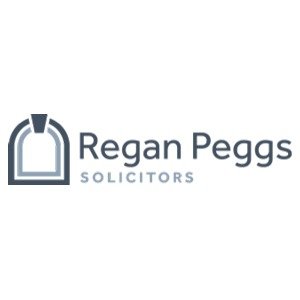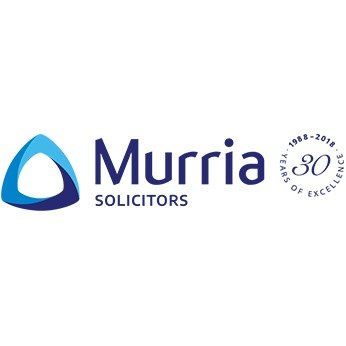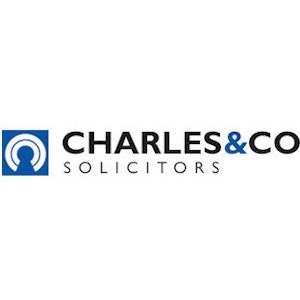Best Acquisition / Leveraged Finance Lawyers in Birmingham
Share your needs with us, get contacted by law firms.
Free. Takes 2 min.
List of the best lawyers in Birmingham, United Kingdom
About Acquisition / Leveraged Finance Law in Birmingham, United Kingdom
Acquisition and leveraged finance law forms an essential part of Birmingham’s business and legal landscape. This area of law relates to the funding and structuring of the purchase of companies, particularly through the use of significant amounts of borrowed money. Leveraged finance often involves using a company’s assets or cash flows as collateral to secure loans for these transactions. Birmingham, recognised as a major commercial hub outside London, has a vibrant market for mergers, acquisitions, and private equity transactions, making legal advice in this field crucial for businesses and investors.
Why You May Need a Lawyer
Several scenarios can prompt the need for specialist legal advice in acquisition or leveraged finance:
- Buying or selling a business, especially where external finance or debt is required.
- Structuring a management buyout or buy-in that requires borrowings secured against company assets.
- Private equity or venture capital transactions aiming to acquire ownership stakes.
- Negotiating loan terms, security arrangements, covenants, and inter-creditor agreements with lenders.
- Managing lender due diligence and ensuring regulatory compliance.
- Navigating distressed acquisitions or corporate restructurings.
- Advising on cross-border transactions subject to UK jurisdiction but involving overseas elements.
Expert legal advice ensures risk mitigation, compliance, and optimal deal structure, ultimately protecting your interests in complex transactions.
Local Laws Overview
In Birmingham and across the United Kingdom, acquisition and leveraged finance deals are governed by a combination of national legislation and common law principles. Key legal aspects include:
- The Companies Act 2006 which sets out directors' duties, company buybacks, and disclosure requirements for acquisitions.
- The Financial Services and Markets Act 2000 which regulates financial services and lending activities.
- UK Takeover Code rules if the target company is a public company, including specific regulations for takeover bids.
- Security documentation such as debentures and charges registered at Companies House to protect lender interests.
- Restrictions around unlawful financial assistance that prevent target companies from assisting buyers in funding their own acquisition, with certain exemptions and safe harbours.
- Taxation laws influencing structuring and financing options in deals.
Local professional expertise is important, as Birmingham lawyers are well-acquainted with both the legal nuances and the commercial context of the local market.
Frequently Asked Questions
What is leveraged finance?
Leveraged finance refers to the use of a significant amount of borrowed funds to acquire a company, where loans are often secured using the target’s assets or predictable cash flows.
How does acquisition finance differ from other types of business financing?
Acquisition finance is specifically structured to facilitate the purchase of companies, often involving tailored loan agreements, while other business financing might be for general growth or working capital.
Can a company assist in its own acquisition financing?
UK law restricts companies from giving unlawful financial assistance in acquiring their own shares, though some exemptions may apply. Legal advice is necessary to navigate these restrictions.
What sources of funding are commonly used in acquisition finance transactions in Birmingham?
Common sources include bank loans, private equity, mezzanine finance, vendor loans, and sometimes bonds or capital markets instruments.
What types of security do lenders typically require?
Lenders often seek a fixed or floating charge over company assets, debentures, share pledges, and may require director or corporate guarantees.
What due diligence is involved in leveraged finance deals?
Due diligence involves a thorough review of the target company's financial standing, contracts, assets, liabilities, and compliance to assess investment risks and determine deal structure.
Who regulates acquisition and leveraged finance in the United Kingdom?
Several authorities oversee aspects of such transactions, including the Financial Conduct Authority (FCA) and, in public deals, the Panel on Takeovers and Mergers.
Are there any specific local considerations for deals in Birmingham?
Birmingham’s strong professional services sector, regional economic policy, and familiarity with local markets can impact transaction structuring and lender appetite.
What happens if the borrowing company defaults?
If the borrower defaults, lenders may enforce secured assets, appoint administrators, or take other enforcement actions as outlined in the loan and security documents.
How long do these transactions typically take?
Timelines vary depending on transaction complexity, due diligence findings, and regulatory approvals, but completion can range from several weeks for private deals to several months for complex or public transactions.
Additional Resources
If you are seeking further information or practical support, the following resources and bodies can be helpful:
- Birmingham Law Society - a local voice for solicitors and legal professionals in Birmingham.
- Companies House - provides access to official company filings, important for due diligence.
- Financial Conduct Authority (FCA) - regulator for financial services and lending.
- British Private Equity and Venture Capital Association (BVCA) - offers insights on market practice.
- The UK Panel on Takeovers and Mergers - provides guidance for public company transactions.
- UK Government’s Business and Self-Employed portal - practical advice for business-related legal obligations.
Next Steps
If you believe you require legal assistance for an acquisition or leveraged finance matter in Birmingham, consider the following steps:
- Gather relevant documents such as business plans, financial statements, and loan correspondence.
- Identify your objectives, desired outcomes, and any key deal participants or stakeholders.
- Seek recommendations and contact a specialist law firm or solicitor with relevant experience in acquisition and leveraged finance.
- Arrange an initial consultation to discuss your situation and understand the legal fees, process, and timeline.
- Keep open communications with your legal adviser throughout the transaction and ensure you understand all documents before signing.
Engaging with an experienced lawyer early in the process is crucial for mitigating risk and achieving a successful transaction.
Lawzana helps you find the best lawyers and law firms in Birmingham through a curated and pre-screened list of qualified legal professionals. Our platform offers rankings and detailed profiles of attorneys and law firms, allowing you to compare based on practice areas, including Acquisition / Leveraged Finance, experience, and client feedback.
Each profile includes a description of the firm's areas of practice, client reviews, team members and partners, year of establishment, spoken languages, office locations, contact information, social media presence, and any published articles or resources. Most firms on our platform speak English and are experienced in both local and international legal matters.
Get a quote from top-rated law firms in Birmingham, United Kingdom — quickly, securely, and without unnecessary hassle.
Disclaimer:
The information provided on this page is for general informational purposes only and does not constitute legal advice. While we strive to ensure the accuracy and relevance of the content, legal information may change over time, and interpretations of the law can vary. You should always consult with a qualified legal professional for advice specific to your situation.
We disclaim all liability for actions taken or not taken based on the content of this page. If you believe any information is incorrect or outdated, please contact us, and we will review and update it where appropriate.














